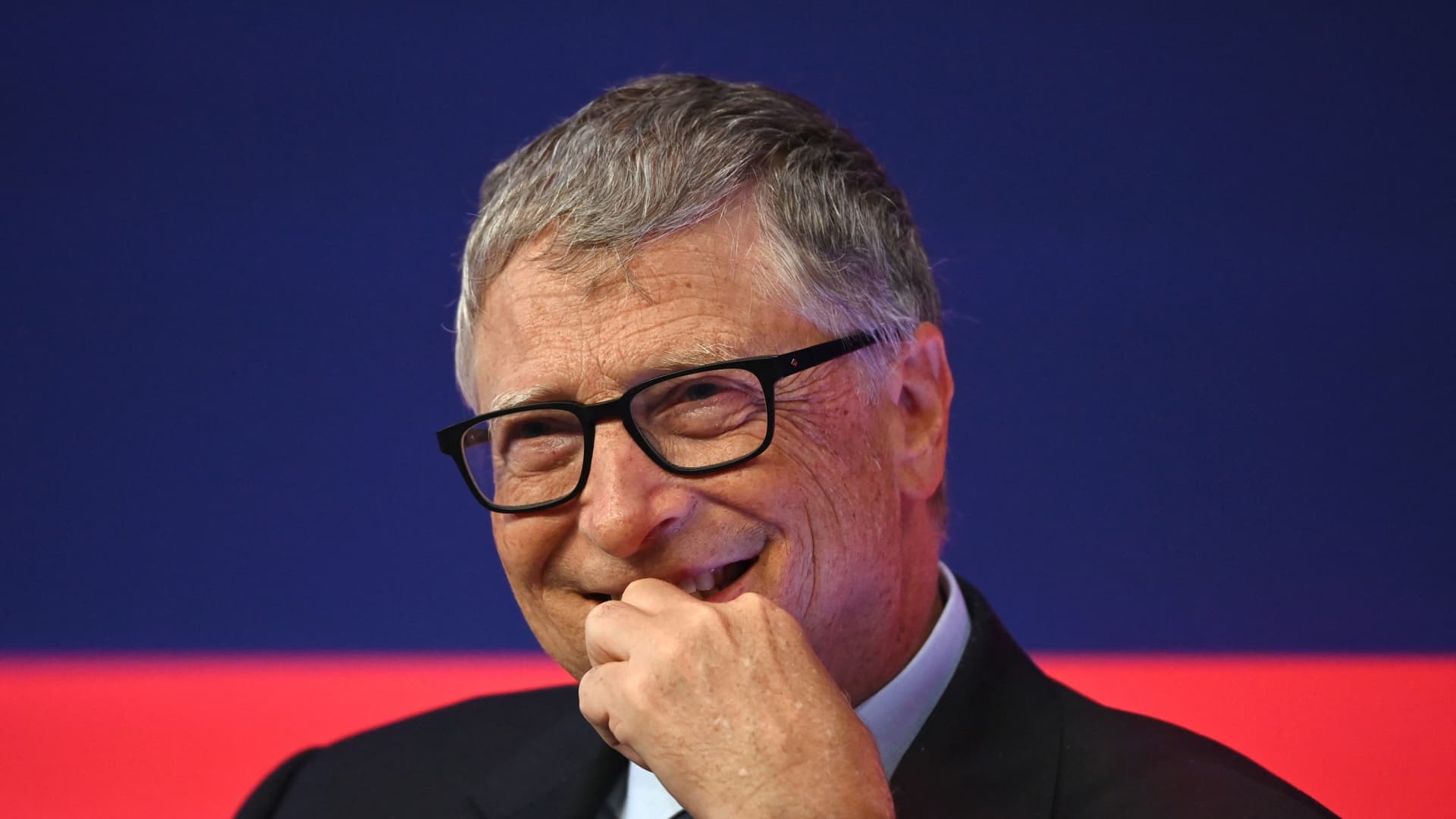Products You May Like
The rise of artificial intelligence-powered chat products like ChatGPT have a lot of people wondering what sort of tasks AI can already handle as well as humans.
Now, you can add “interviewing Bill Gates” to that list. Recently, the billionaire Microsoft co-founder sat down with U.K. Prime Minister Rishi Sunak as the two answered questions generated by an AI chatbot.
In a video posted to YouTube by Sunak’s office last month, the British leader read the AI-generated questions to Gates, including one that asked what advice the billionaire would offer to his younger self if he “could go back in time.”
“I was, kind of, overly intense,” Gates responded, lamenting his workaholic youth. “I didn’t believe in weekends. I didn’t believe in vacation.”
While Gates’ early intensity may have helped him build Microsoft into a multibillion-dollar tech giant — amassing a net worth that currently stands at $105.2 billion, according to Forbes — he said it also made him socially awkward as a leader.
“I had this very narrow view of the working style, the talking style,” he said, adding that in hindsight, he likely passed on hiring people who “probably could have helped me, [but] just didn’t fit in” with the intense atmosphere he’d created around him.
In past interviews, Gates has also said he’d tell his younger self to “read a lot” and “explore the developing world” as a traveler. The billionaire also has been very open about his introversion as a young man, calling himself “socially inept” in a 2019 Reddit “Ask Me Anything” session.
Gates’ intensity earned him a reputation as a difficult boss to work for in Microsoft’s early years. He’s previously admitted that he was a demanding boss who sometimes spoke harshly to employees, and that his demeanor was a reflection of the high standards he held for everyone, including himself.
“I never asked [Microsoft employees] to work any harder, or be tougher on their mistakes, than I was on myself,” Gates told the “Armchair Expert” podcast in 2020. “It doesn’t completely forgive it, but at least it shows where you’re coming from, that at least you’re projecting your own values and trying to get everyone to be hardcore like you are.”
Eventually, Gates had to learn to lighten up, he told Sunak — especially as Microsoft grew.
“For the small, early Microsoft group, that was OK,” Gates said. “But, then as we got bigger, I had to realize that, OK, as you get sales teams in, as you get people with families in, you’ve got to think about this. It’s a very long-term thing.”
And if he could go back in time to change anything, the wiser Gates would “help myself try to realize that a little sooner than I did,” he added.
DON’T MISS: Want to be smarter and more successful with your money, work & life? Sign up for our new newsletter!
Get CNBC’s free Warren Buffett Guide to Investing, which distills the billionaire’s No. 1 best piece of advice for regular investors, do’s and don’ts, and three key investing principles into a clear and simple guidebook.
